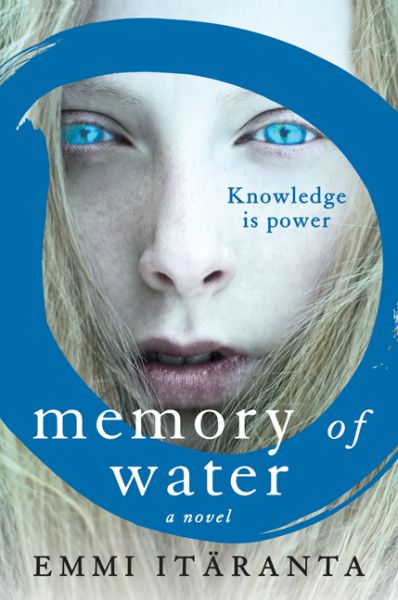A quiet tale of the slow end of the world
Memory of Water
By Emmi Itäranta

17 Sep, 2014
0 comments
Between our time and that of 17-year-old Noria Kaitio is the Twilight Century, a period of climate-change-driven chaos left the world a much poorer place. Noria lives in the Scandinavian Union, which in turn takes its direction from New Qian. Democracy is a thing of the past, as it generally is in stories like this, and government is very much top down. A sensible person in these circumstances either tries to exploit a dying system for ephemeral personal power or they try to avoid attracting the attention of ambitious people. Noria rejects one and fails at the other.
Not everybody is happy with this state of affairs, judging by the on-going war just off-stage, but the war is only indirectly part of Noria’s life and we don’t learn much about. We don’t learn much about a lot of things, since Noria doesn’t spend a lot of time thinking about situations that are normal to her and also the governments of this time prefer not to burden their subjects with excessive amounts of information.
Noria’s plan for her life is to become a master of the tea ceremony like her father and his father and the men before them; a female tea master is unconventional but not impossibly so. She and her close friend, perhaps lover, Sanja also plan to continue their hobby of covertly exploring the trash heaps left to this diminishing future by our culture; this is also unconventional and the sort of activity of which that the government could conceivably take an extremely negative view. The government would definitely take a negative view if they had any inkling of the records the pair uncovers during the course of the book.
Unfortunately for everyone in Noria’s community, the genially corrupt Major Bolin is replaced by the more ambitious, far more ruthless Commander Taro. Life very quickly becomes much harder for everyone whose isn’t Taro. Entire families are targeted for harsh retribution. This is particularly bad for the Kaitios because they have been sitting on a secret treasure for generations, a treasure that Taro clearly believes exists and plans to take for his own.
Taro has all the time and power to patiently pursue his vendetta. Noria has a different kind of power, one the nihilist Taro will find challenging to deal with.
Readers should not go into this expecting the book to make a sudden dash toward an action-based plot, something akin to a young adult dystopia. Matters move along deliberately, following the book’s grim logic towards its end, and the pacing reflects this. Think Davy, not The Hunger Games. The stakes are literally life and death, freedom versus repression and there is considerable emotional urgency but what there isn’t is a lot of running around or shouting. It’s an oddly quiet, contained [1] little dystopia.
This is kind of an edge case for Translation Wednesday because I believe the author wrote this in English and in Finnish simultaneously. I am not sure the result counts as a translation, exactly. I am sure it’s a very strong debut and whatever language I should consider this to have been originally written in, the result is quite compelling.
The Memory of Water may be purchased here.
- It’s not what I call a snow-globe dystopia, where you have to imagine the city or the nation the book is set in is all by itself, somehow separated from all external influences because otherwise the plot bursts into flames, falls over and explodes. The governments in this span Eurasia. They might span the whole world but the deliberate way the government suppresses information makes its ultimate extent hard to determine.
